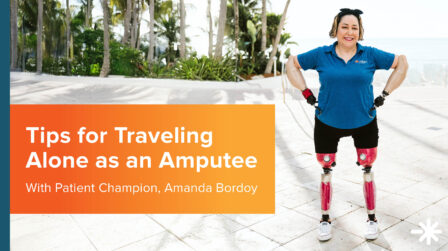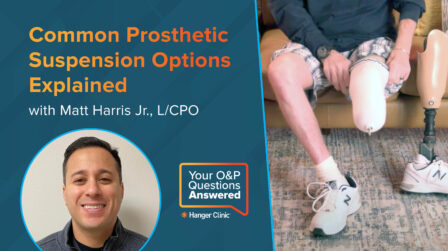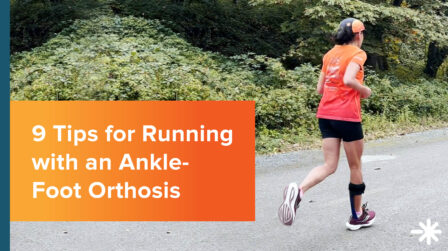Social Worker and Mother Mona Patel Gives Back With Below-Knee Prosthesis
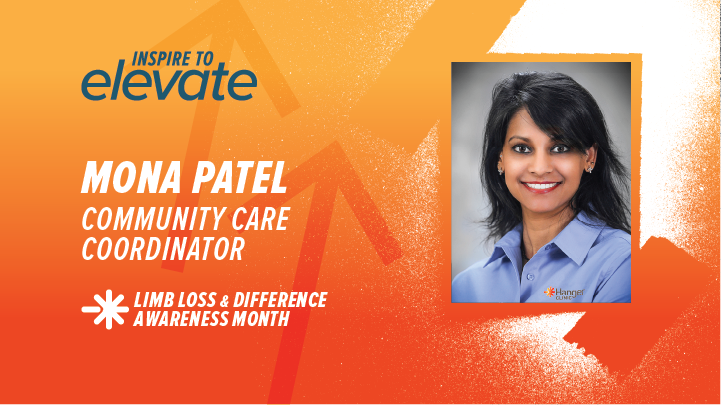
After being hit by a drunk driver, Mona Patel suffered with pain until she decided to have her leg amputated below the knee. Now with her prosthesis, she continues to thrive as a social worker, mother, and volunteer.
At 17 years old, Mona Patel was attending California Polytechnic University and working towards a degree in social work. When walking to class one day, she was hit by a drunk driver, pinned between the car and a metal railing, smashing her leg and foot.
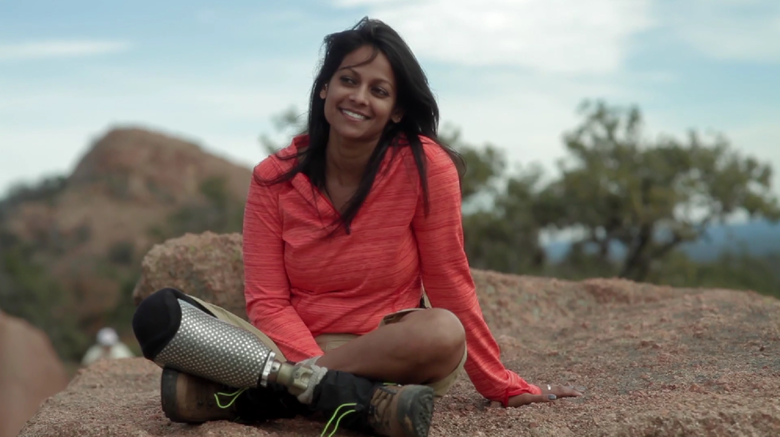
Her parents were faced with a difficult decision, limb salvage or amputation. To save their daughters’ leg, they elected to amputate half of Mona’s foot. But from that moment, Mona’s life was forever changed.
“Initially, my parents and I did everything we could to save my leg. My foot amputation was followed by seven years of surgeries, physical therapy, pain medications, and limited endurance. When I was getting ready for my 21st surgery, I finally came to a crossroad in my life—continue down the same path of repeated visits to the operating room and limited mobility or amputate my leg below the knee. After much research and debate, I decided to move forward with below-knee amputation.
At the time, I was 24 years old, newly married, and had so many questions about my recovery, future mobility, becoming pregnant and having a baby with an amputated leg, and so much more. I was able to eventually find and talk with other people who were in a similar situation as me, including a woman who had an above-knee amputation and then went on to have four children. They provided me with hope and a positive outlook.
After my amputation, my life changed. With my below-knee prosthesis, I gradually began regaining my mobility and surpassing where I was prior to my amputation surgery. I could walk longer distances, did not fatigue as easily, and was not experiencing chronic pain anymore. I was able to get back to life, traveling, working as a social worker, and eventually starting my family.”
Facts About Limb Loss
Discover more about the common causes of limb loss and limb difference, and opportunities to overcome challenges and embrace life.
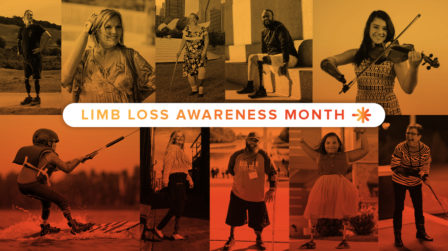
Giving Back
“When I was faced with the decision of getting an amputation, I wanted to speak with someone like me, around my age, with similar life goals. After some searching, I was fortunate to find that person. I decided to make it my mission to help new amputees connect with others similar to themselves and feel supported throughout their experience. In 1997, I founded the San Antonio Amputee Support Group. I later had the honor of serving on the board of the Amputee Coalition of America. In 2009, I helped to lead legislative efforts for a bill that now mandates more fair insurance coverage for prostheses. And I regularly meet with people considering an amputation. The resources available to people have grown, but there continues to be an opportunity to improve them.”
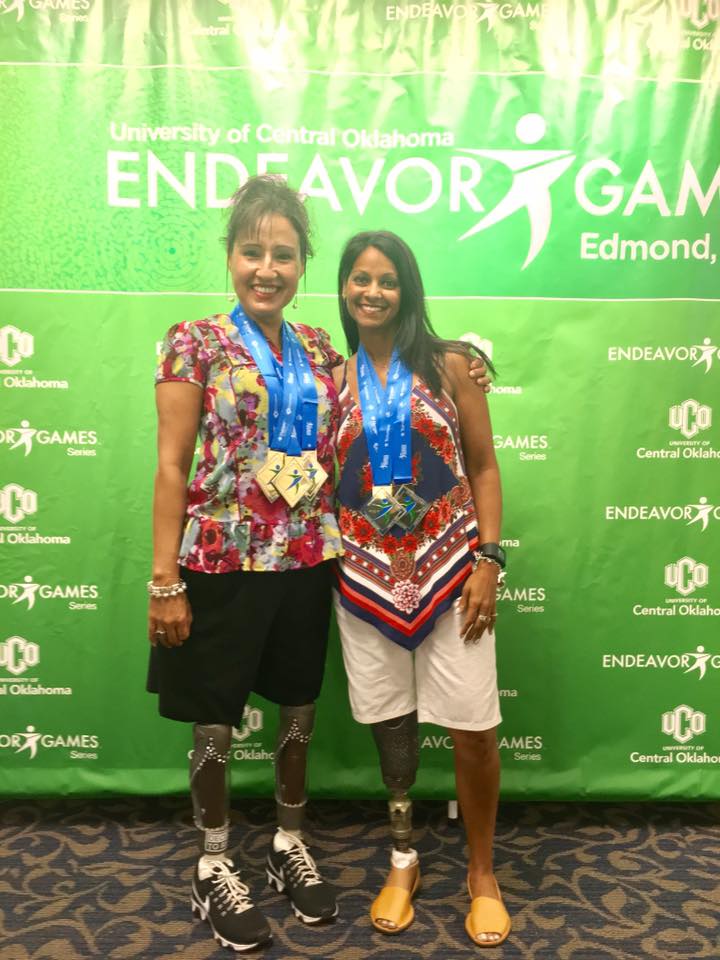
I make it my mission to help people feel supported, and I encourage the people I meet with to consider paying it forward and share their experience with others.
Mona Patel
Life as a Social Worker
Before Mona’s amputation, she started down the path of pursuing a degree in social work. After her accident, she decided nothing was going to stop her from doing what she loved.
“I always wanted to help people and social work seemed like a good fit for me. After my accident, I earned a bachelor’s in behavioral science from California Polytechnic University, a master’s in psychology from Pepperdine University, and a master’s in social work from Southwest Texas State University. Since receiving my degrees, I have had a variety of experiences in the field, working with children, mental health, home health, and then having a private practice for a couple of years.
When I was visiting with my prosthetist, I was asked if I had any interest in pursuing social work within the prosthetic field. With my background, I felt like it would be a perfect fit. I work with patients from a psychosocial perspective during their amputation and prosthetic experience, helping to provide emotional and physical support and improve outcomes. With my background as a patient, volunteer, and social worker, I help heal the mind, heart, and body and stand beside patients as they work through their emotional and physical journeys. I truly enjoy working as a Community Care Coordinator with Hanger Clinic in San Antonio.”
Climbing Mount Kilimanjaro
“I was looking for a new challenge and decided to take on Mount Kilimanjaro— the highest mountain in Africa and the highest free-standing mountain in the world. I organized and led a climb up Mount Kilimanjaro for myself and eight other people with amputations. We prepared mentally and physically for over a year. We relied on each other’s strengths to get up and back down the mountain.”
Family and Children
In addition to her career, Mona went on to pursue many of her personal goals.
“I was married shortly before I decided on my amputation. Knowing I wanted children in my future, I wanted to fully understand how my amputation would impact that experience. With support, I moved forward with my decision and still feel it was the best decision for me. I then went on to have two beautiful daughters. Growing up, they knew I wasn’t like every other mom, but they also saw that I didn’t let it slow me down. I participated in self-care and physical activities like hiking and mountain climbing. My daughters were there when I volunteered to meet with others going through an amputation, attended adaptive sport events, and so much more. This experience shaped them into compassionate and strong young women, and I am so proud of where life is taking them today.”
Inspire to Elevate
Hanger Clinic is celebrating Limb Loss and Limb Difference Awareness Month by hosting a Virtual Recognition Board where members of the community can recognize a fellow community member who embodies the Amputee Coalition’s 2023 theme “Inspire to Elevate.”
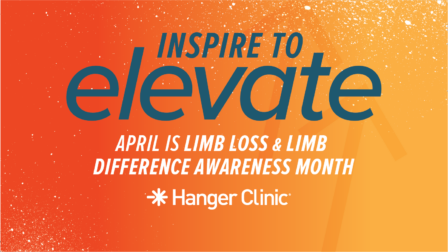
Limb Loss and Limb Difference Awareness Month
“I encourage people to share amputation experiences throughout the year and appreciate that Limb Loss and Limb Difference Awareness Month provides us with an opportunity to enhance awareness. Social media has opened a wider opportunity to reach more people across multiple states. In addition to sharing facts and information to support those with limb loss, take the time to share tips to prevent limb loss from occurring. Share your stories and celebrate how far the limb loss community has come with resources to support one another. If you are looking for support in your area, reach out to AMPOWER®, a peer-to-peer support program for people with limb loss or limb difference. There is a community out there to support you and your families.”
Request a Free Evaluation
If you or someone you love is looking for personalized prosthetic care, get in touch with a board-certified prosthetist at a Hanger Clinic near you.
Latest Updates
Subscribe to stay up-to-date on our latest posts.

